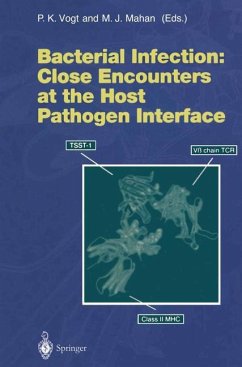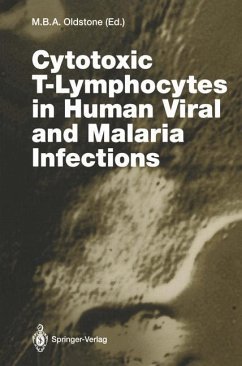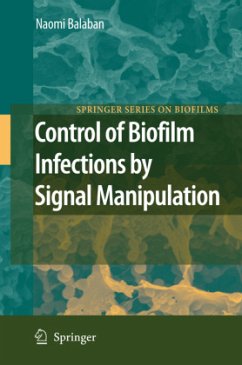
Bacterial Pathogenesis
Methods and Protocols
Herausgegeben: DeLeo, Frank; Otto, Michael
Versandkostenfrei!
Versandfertig in 6-10 Tagen
76,99 €
inkl. MwSt.

PAYBACK Punkte
38 °P sammeln!
Bacterial infections affect world health today as a leading cause of morbidity and mortality. Pathogenic bacteria routinely command a broad spectrum of niches in the human host, making an understanding of pathogenesis mechanisms crucial to the development of prophylactics and treatment for bacterial diseases. A variety of in vitro methods, in vivo animal model systems and cutting-edge genomics assays have arisen in the effort to study bacterial pathogenesis and identify potential therapeutic targets. In Bacterial Pathogenesis, in-depth methods and state-of-the-art protocols are presented for i...
Bacterial infections affect world health today as a leading cause of morbidity and mortality. Pathogenic bacteria routinely command a broad spectrum of niches in the human host, making an understanding of pathogenesis mechanisms crucial to the development of prophylactics and treatment for bacterial diseases. A variety of in vitro methods, in vivo animal model systems and cutting-edge genomics assays have arisen in the effort to study bacterial pathogenesis and identify potential therapeutic targets. In Bacterial Pathogenesis, in-depth methods and state-of-the-art protocols are presented for investigating specific mechanisms of pathogenesis for a wide range of bacteria. This invaluable collection includes protocols to study host-pathogen interactions, animal models of infection, and novel approaches to identifying therapeutic targets designed to control infections. Up-to-date molecular typing methods for Staphylococcus aureus and a new model of streptococcal pharyngitis in non-human primates are also included. Bacterial Pathogenesis will prove an invaluable collection for microbiologists, immunologists, cell biologists and infectious disease clinicians - and indispensable to all science researchers interested in studying pathogenic bacteria and related disease processes.












